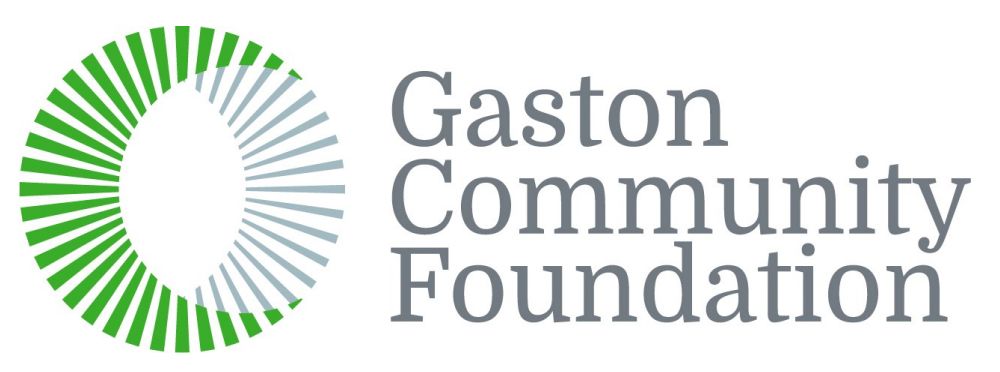
Planned Giving Opportunities
What is planned giving? Simply put, planned giving is giving wisely.
Just like anything else, there is more than one method of reaching a
goal. If a goal is to be attained, success is more certain with careful
planning. In the case of a gift, the gift can be maximized or attained
quicker with a planned and concerted effort.
This handbook is designed to offer a brief outline to several different giving vehicles, or ways to give that can be customized to suit the individual giver and maximize the impact of the gift. A word of counsel, every gift is unique and has a unique set of circumstances. The examples used as illustrations will vary according to the circumstances available at the time of the gift. What is very important to note is that every gift begins with the heartfelt desire to give. As you review the booklet, think about the goal in mind- the purpose and scope of the gift you would like to make. There are many resources available to help you achieve your gift.
This handbook is designed to offer a brief outline to several different giving vehicles, or ways to give that can be customized to suit the individual giver and maximize the impact of the gift. A word of counsel, every gift is unique and has a unique set of circumstances. The examples used as illustrations will vary according to the circumstances available at the time of the gift. What is very important to note is that every gift begins with the heartfelt desire to give. As you review the booklet, think about the goal in mind- the purpose and scope of the gift you would like to make. There are many resources available to help you achieve your gift.

Simple Bequest
For those wanting to
make a lasting gift to
Promise for Haiti, a
bequest is a simple
way to accomplish
the gift. Promise for
Haiti has an
Endowment Fund at
the Community
Foundation. The
fund name is the
Promise for Haiti
Endowment Fund.
Naming this
particular Fund as a
beneficiary in a will is
quick and easy. A
specific amount can
be designated but a common practice is to designate a percentage
of the estate as a bequest to the Fund. Besides cash, you can also
give appreciated stocks and other assets.

Individual Retirement Accounts
A very tax-efficient way to give to Promise for Haiti is to designate
the Promise for Haiti Endowment Fund as the beneficiary of your
retirement plan. In the case of a 401 (k), 403 (b) or IRA, tax rates
upon death could be very high and heirs may have to pay estate tax
on income earned. For these reasons, retirement plan assets are
many times the first to be designated as a bequest.

Charitable Gift Annuity
The ideal solution for those with the desire to set up a planned gift
but also needing financial security is a charitable gift annuity. A gift
annuity works well for persons over 65 and ranges between $10,000
and $50,000. Once the amount of the gift is determined, a fixed
stream of income is calculated combined with a deferred charitable
gift. The donor also receives an immediate tax deduction for the
charitable portion of the gift. Payments are received to the donor
quarterly. Upon death, the Promise for Haiti Endowment Fund can
be designated to receive a gift.
With a gift annuity, the percent of interest is determined on a sliding scale which factors the age of the donor. Persons older than 85 years old can realize interest rates in the 8% to 9% range.
Appreciated stock can also be used to establish the gift annuity.
Example: Bob (72) and Elaine (68) have 1,000 shares of stock paying a dividend of $920/yr. They own appreciated stock or mutual fund shares and have considered selling some of the shares and reinvesting the proceeds to generate more income but they have hesitated not wanting to pay capital gain tax.
Using the current ACGA* rate for a 2 life CGA, Bob and Elaine will receive $2,250/yr with the stock gift of $42,530. The remainder of the assets will go to Charity.
They want to count on fixed payments, unaffected by interest rates/ stock prices which they cannot outlive. They also want to assure the continuation of payments to a surviving spouse without the delay of probate proceedings.
*American Council on Gift Annuities
With a gift annuity, the percent of interest is determined on a sliding scale which factors the age of the donor. Persons older than 85 years old can realize interest rates in the 8% to 9% range.
Appreciated stock can also be used to establish the gift annuity.
Example: Bob (72) and Elaine (68) have 1,000 shares of stock paying a dividend of $920/yr. They own appreciated stock or mutual fund shares and have considered selling some of the shares and reinvesting the proceeds to generate more income but they have hesitated not wanting to pay capital gain tax.
Using the current ACGA* rate for a 2 life CGA, Bob and Elaine will receive $2,250/yr with the stock gift of $42,530. The remainder of the assets will go to Charity.
They want to count on fixed payments, unaffected by interest rates/ stock prices which they cannot outlive. They also want to assure the continuation of payments to a surviving spouse without the delay of probate proceedings.
*American Council on Gift Annuities

Charitable Remainder Trust (CRT)
Giving through a Charitable Remainder Trust allows the donor to
receive income for the rest of his or her life and know that whatever
remains will benefit Promise for Haiti.
There are different types of Trusts to accomplish this and all can be structured to accommodate the financial goals of the donor. As a rule, the donor first determines the amount of the gift, which can be cash, appreciated stock, real estate or other assets. An immediate charitable tax deduction is received for the charitable portion of the trust. The trust pays the beneficiary, which can be the donor, regular income payments. Upon the beneficiary’s death, the remaining assets of the trust transfer to the Promise for Haiti Endowment Fund.
There are different types of Trusts to accomplish this and all can be structured to accommodate the financial goals of the donor. As a rule, the donor first determines the amount of the gift, which can be cash, appreciated stock, real estate or other assets. An immediate charitable tax deduction is received for the charitable portion of the trust. The trust pays the beneficiary, which can be the donor, regular income payments. Upon the beneficiary’s death, the remaining assets of the trust transfer to the Promise for Haiti Endowment Fund.

Types of Trusts:
CRAT – charitable remainder annuity trust
CRUT - charitable remainder unitrust
NICRUT –net income unitrust
NIMCRUT-net income CRUT with makeup provision
FLIPCRUT-CRUT that begins as a NICRUT or NIMCRUT but changes
to a standard unitrust upon occurrence of specific event
CRUT - charitable remainder unitrust
NICRUT –net income unitrust
NIMCRUT-net income CRUT with makeup provision
FLIPCRUT-CRUT that begins as a NICRUT or NIMCRUT but changes
to a standard unitrust upon occurrence of specific event

Example: Tom wants to retire but still a few years away. His current
portfolio holds a concentration of company stock with a low cost
basis and low dividend payments.
Tom can place $800,000 of ABC stock into a Charitable Remainder Trust. He gets a charitable income tax deduction based on the fair market value of the gifted stock in 2011, at a time when he is still in a high income tax bracket. The Trust sells the stock and invests the assets in a balanced portfolio. The Trust is written so that it will pay only net income for the next 3 years because Tom will continue to work. After 3 years, a “trigger event” occurs and Tom retires. The Trust converts or “flips” to pay a set 5% of the annual market value of the trust for the life of Tom and his wife. This will provide an enhanced income stream during their retirement years the Promise for Haiti Endowment Fund receives all assets in the Trust at the death of the last income beneficiary.
Tom can place $800,000 of ABC stock into a Charitable Remainder Trust. He gets a charitable income tax deduction based on the fair market value of the gifted stock in 2011, at a time when he is still in a high income tax bracket. The Trust sells the stock and invests the assets in a balanced portfolio. The Trust is written so that it will pay only net income for the next 3 years because Tom will continue to work. After 3 years, a “trigger event” occurs and Tom retires. The Trust converts or “flips” to pay a set 5% of the annual market value of the trust for the life of Tom and his wife. This will provide an enhanced income stream during their retirement years the Promise for Haiti Endowment Fund receives all assets in the Trust at the death of the last income beneficiary.

Charitable Lead Trust
We all know the expression, “two birds with one stone”. This
expression is a good way to describe a Charitable Lead Trust. With
this kind of trust, a donor can provide for Promise for Haiti and
provide for an heir later. Here is how it works:
The donor determines the amount of the gift (cash or appreciated stock) at $100,000 or above. The CLT (Charitable Lead Trust) is set up with the Promise for Haiti Endowment Fund as the beneficiary to receive an annual amount for a specified number of years or until the donor’s death. The donor also designates a family member or someone as the final beneficiary of the trust which will transfer the remainder of the trust to the recipient and the donor’s estate will owe less in taxes.
The donor determines the amount of the gift (cash or appreciated stock) at $100,000 or above. The CLT (Charitable Lead Trust) is set up with the Promise for Haiti Endowment Fund as the beneficiary to receive an annual amount for a specified number of years or until the donor’s death. The donor also designates a family member or someone as the final beneficiary of the trust which will transfer the remainder of the trust to the recipient and the donor’s estate will owe less in taxes.

Gift of Insurance
A donor can name Promise for Haiti Endowment Fund as the
beneficiary of a life insurance policy. This can be a paid-up policy
or a policy requiring continued premiums. A tax deduction for the
approximate cost or fair market value, whichever is less, will be
received. If the policy is paid up, the tax deduction can be
immediate. If not, continued tax deductions can be claimed on
premium payments made directly or through gifts to the Fund.
This giving tool works especially well for couples that may have purchased policies years ago with children in mind. Now, with those children as self supporting adults, the policy may no longer have its original purpose. The purpose can be redirected and benefit Promise for Haiti.
This giving tool works especially well for couples that may have purchased policies years ago with children in mind. Now, with those children as self supporting adults, the policy may no longer have its original purpose. The purpose can be redirected and benefit Promise for Haiti.

Gifts of Real Estate
Real Estate can be a means of fulfilling a goal to give a substantial
gift to Promise for Haiti. In some cases a gift of real estate can help
avoid estate taxes and minimize or eliminate burden placed on heirs.
Charitable gifts of real estate range from personal residences and
vacation homes to rental properties, farmland and commercially
developed land. The Gaston Community Foundation has a real
estate acceptance policy. Once the gift is deemed acceptable, the
gift can be directed to the Promise for Haiti Endowment Fund or to a
separate fund for the benefit of Promise for Haiti.
Example: Mrs. Frank had lost her husband and could not farm the land as he had done. She owned 90 acres and was struggling to pay the taxes annually. Mrs. Frank loved Promise for Haiti and wanted to leave a gift for it but without available cash, her dream seemed unattainable. With a gift of real estate, Mrs. Frank was able to donate her land, which the Community Foundation sold into 3 parcels, giving her 3 nice new neighbors. The money was then used to create a Trust which gives Mrs. Frank an income. Naming Promise for Haiti as the beneficiary of the Trust, Promise for Haiti will receive the remainder of the Trust, thus accomplishing Mrs. Frank’s goal.
Example: Mrs. Frank had lost her husband and could not farm the land as he had done. She owned 90 acres and was struggling to pay the taxes annually. Mrs. Frank loved Promise for Haiti and wanted to leave a gift for it but without available cash, her dream seemed unattainable. With a gift of real estate, Mrs. Frank was able to donate her land, which the Community Foundation sold into 3 parcels, giving her 3 nice new neighbors. The money was then used to create a Trust which gives Mrs. Frank an income. Naming Promise for Haiti as the beneficiary of the Trust, Promise for Haiti will receive the remainder of the Trust, thus accomplishing Mrs. Frank’s goal.
